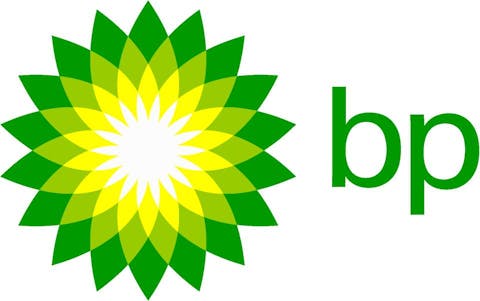On June 28, the Shah Deniz gas field consortium in Azerbaijan awarded the Trans Adriatic Pipeline (TAP) the privilege of delivering the newly tapped gas supply to Europe. If developments continue to move at this speed, the final investment decision will be made sometime in October 2013 and production is due to start in 2018 with the first volumes arriving in Europe by 2019.
This is a major boon to shareholders of the consortium, which include BP plc (ADR) (NYSE:BP) (25.5% of the share), Statoil ASA (ADR) (NYSE:STO) (25.5%), TOTAL S.A. (ADR) (NYSE:TOT) (10%), and LUKOIL (ADR) (OTCMKTS:LUKOY) (10%), as 31 trillion cubic feet of gas will soon be connected to the European grid through the South Caucasus pipeline, the proposed Trans-Anatolia Natural Gas Pipeline, and the recently awarded TAP.
Furthermore, the timeline of the project parallels the expected recovery of the demand for hydrocarbon resources in Europe after its collapse from 588 billion cubic meters in 2010 to 518 billion cubic meters in 2012.

Likewise, BP plc (ADR) (NYSE:BP) is developing new technology to exceed the deepwater drilling limits of 15,000 psi and 250 degrees Fahrenheit so that it can expand gas production in the Caspian Sea. Testing at the Shafag-Asiman field is still three years away, but its conclusion promises to significantly increase production capacity, pushing beyond the projected 16 billion cubic meters per year output of the Shah Deniz project’s second phase.
This massive push to develop the Caspian gas fields also signifies the importance of other natural gas fields for the European market. According to the Economist Intelligence Unit report from July 2013, Shah Deniz will be an important additional source of energy for Europe, but will not be a game-changer for the overall gas supply. This presents opportunities for other natural gas producers who are looking to enter the European market.
Reducing reliance on Russia
Part of the drive for Caspian gas comes from the long standing conflict between Russia and Europe over natural gas. Russia had supplied more than 70% of Europe’s imports in the early 1990s, but with the development of Norwegian and Nigerian natural gas, the share of Russian gas had dropped to around 32% by 2010. Nonetheless, the Russian Federation is still the largest exporter of natural gas to Western Europe and EU is still looking to reduce its reliance on Russian sources.
Although many analysts now assess that Russia is more dependent on the European market than Western Europe is to Russian supply, Russia’s reserves are the largest in the world and its proximity to Europe presents an advantage that will challenge diversification efforts.
…but Turkmenistan won’t budge
Turkmenistan is believed to have one of the largest natural gas reserves on the Caspian Sea and production at the Galkynysh field is expected to begin later this year. Production in Turkmenistan will be a crucial piece to Europe’s policy of diversifying its import sources and President Berdymukhamedov promised EU Energy Commissioner Gunther Oettinger that 30 billion cubic meters could be supplied to Europe in the near future.
However, this seems increasingly unlikely as Ashgabad appears uninterested in working with European partners in the face of ongoing projects to supply China. In September 2012, the president did not even bother meeting Commissioner Oettinger when he visited Ashgabad.
However, Europe’s intent to diversify its sources of energy and Turkmenistan’s lack of interest present the opportunities for increased natural gas exports to Western Europe elsewhere.
Enter Qatar and ExxonMobil
The most likely and capable source of liquefied natural gas will be Qatar, which has quickly risen to become a major producer. According to BP plc (ADR) (NYSE:BP)’s Statistical Review of World Energy in 2012, Qatar holds the third largest reserve of natural gas after Russia and Iran. Sitting on this vast reserve, the country has not stayed idle while long-term global demand for hydrocarbons continued to rise.
Between 2008 and 2012, Qatar doubled its gas production, originally intended for the U.S. market but now redirected to the European market with the advent of the shale gas boom in North America.
The company that is at the forefront of helping Qatar build its natural gas capacity is Exxon Mobil Corporation (NYSE:XOM). It recently signed a deal with Qatar Petroleum International to liquefy Qatari natural gas at the Golden Pass LNG terminal facility in Sabine Pass, Texas. The $10 billion facility will produce 15.6 million metric tons annually and it has already received authorization from the U.S. Department of Energy to export to countries with free trade agreements with the United States.
This will include the European Union in the very near future. Although recent controversy over the U.S. spying has caused few rifts in the trans-Atlantic relations, it does not seem to have affected the free trade talks as bilateral talks began as planned on July 8.
The standing objective of the EU to establish energy security through diversification is destined to provide the above mentioned companies with massive windfall profits in the next decade. Long-term investments should be made by companies working in the Caspian Sea with a close eye on technological progress and the progress of pipeline development in Turkey and the Balkans. Conversely, this bodes poorly for Russian companies that are heavily invested in the South and Nord Stream projects.
The article Caspian Gas Signals Greater Opportunity for Qatar originally appeared on Fool.com and is written by Yong Kwon.
Yong Kwon has no position in any stocks mentioned. The Motley Fool recommends Statoil (ADR). Yong is a member of The Motley Fool Blog Network — entries represent the personal opinion of the blogger and are not formally edited.
Copyright © 1995 – 2013 The Motley Fool, LLC. All rights reserved. The Motley Fool has a disclosure policy.




